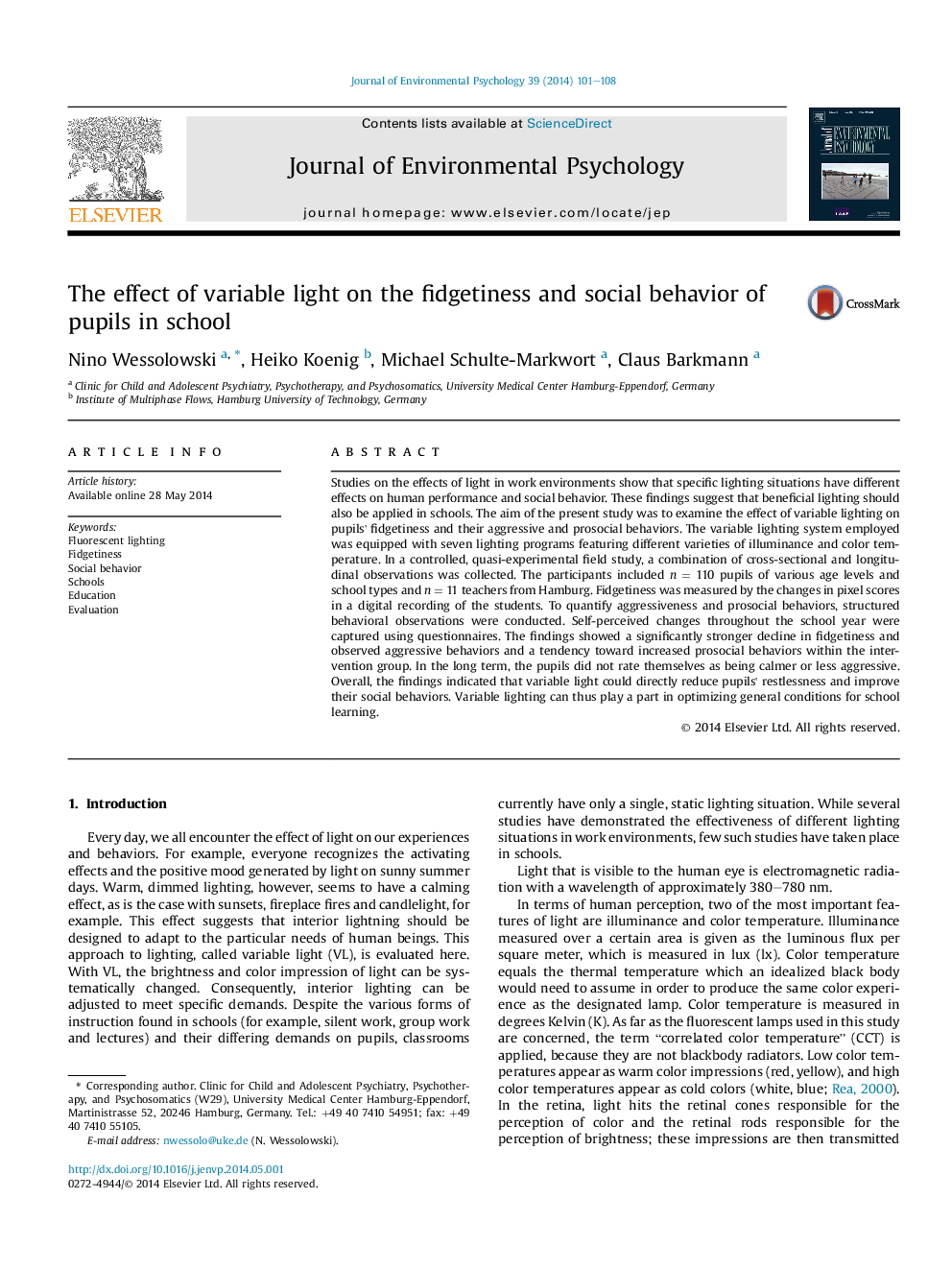| Article ID | Journal | Published Year | Pages | File Type |
|---|---|---|---|---|
| 885596 | Journal of Environmental Psychology | 2014 | 8 Pages |
•The aim was to examine the effect of variable lighting on pupils (n = 110).•Fidgetiness was measured by the changes in pixel scores in a digital recording.•To quantify social behavior structured observations were conducted.•The findings indicated that variable light could directly reduce restlessness.•The findings showed that variable light could improve pupil's social behavior.
Studies on the effects of light in work environments show that specific lighting situations have different effects on human performance and social behavior. These findings suggest that beneficial lighting should also be applied in schools. The aim of the present study was to examine the effect of variable lighting on pupils' fidgetiness and their aggressive and prosocial behaviors. The variable lighting system employed was equipped with seven lighting programs featuring different varieties of illuminance and color temperature. In a controlled, quasi-experimental field study, a combination of cross-sectional and longitudinal observations was collected. The participants included n = 110 pupils of various age levels and school types and n = 11 teachers from Hamburg. Fidgetiness was measured by the changes in pixel scores in a digital recording of the students. To quantify aggressiveness and prosocial behaviors, structured behavioral observations were conducted. Self-perceived changes throughout the school year were captured using questionnaires. The findings showed a significantly stronger decline in fidgetiness and observed aggressive behaviors and a tendency toward increased prosocial behaviors within the intervention group. In the long term, the pupils did not rate themselves as being calmer or less aggressive. Overall, the findings indicated that variable light could directly reduce pupils' restlessness and improve their social behaviors. Variable lighting can thus play a part in optimizing general conditions for school learning.
